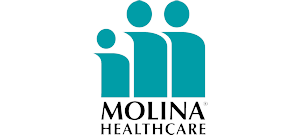
Alcohol Abuse in Virginia
Additionally, addiction has a high comorbidity rate with mental health issues, such as depression and anxiety. This is called a co-occuring disorder. Mental health conditions can predispose individuals to abuse substances such as alcohol. In 2022, the National Insititute of Mental Health (NIH) reported that mental illnesses were most prevalent in women, biracial individuals, and those between the ages of 18-25.
IOP for Alcohol Addiction
This flexible approach allows participants to maintain work, school, or family obligations while receiving evidence-based treatment, including cognitive-behavioral therapy (CBT), relapse prevention strategies, and skills training for long-term sobriety. IOP is particularly effective for those transitioning from residential treatment or for individuals with moderate alcohol dependence who need more support than weekly therapy alone. Programs often include:
- Family Therapy
- Medication Management
- Peer Support Networks
- Personalized Care Plan
With its balance of intensive care and real-world application, IOP helps individuals build a sustainable sober lifestyle while addressing the psychological and behavioral patterns underlying addiction.

Recovery Begins Here
Do You Need Treatment?
Signs of Alcohol Abuse
- Increased secrecy
- Weight fluctuations
- Mood swings
- Frequent hangovers
- Neglecting responsibilities
Over time, heavy drinking can lead to financial strain, job loss, or damaged relationships. Psychological effects, such as depression, anxiety, or memory lapses, often accompany prolonged alcohol misuse. If you or a loved one exhibits these signs, it’s crucial to seek professional evaluation. Treatment programs, like those at Supreme Recovery, provide structured support to break the cycle of addiction and foster lasting recovery.


Steps to Recovery
Support groups, such as AA or SMART Recovery, provide community reinforcement. Long-term recovery also involves lifestyle changes—like improved nutrition, exercise, and stress management—to reduce relapse risks. At Supreme Recovery, we offer customized treatment plans that adapt to your progress, ensuring you have the tools needed for sustained sobriety.
Alcohol Addiction Treatment and Therapy
Our Intensive Outpatient Program (IOP) is designed for individuals who need structured treatment while maintaining work, school, or family responsibilities. Clients attend therapy sessions multiple times per week, receiving the same level of clinical care as residential treatment but with the flexibility to return home each day. This approach allows patients to practice sober living skills in real-world settings while still benefiting from professional support and accountability.
Private counseling sessions with licensed addiction specialists provide a safe space to explore the root causes of alcohol dependence. Therapists use evidence-based approaches like Cognitive Behavioral Therapy (CBT) to address trauma, co-occurring mental health disorders, and destructive thought patterns. These personalized sessions empower clients to develop healthier coping mechanisms and build a strong foundation for lasting recovery.
Led by experienced facilitators, our group therapy sessions create a supportive community where individuals can share experiences and learn from others in recovery. Participants gain valuable insights into addiction while developing interpersonal skills and relapse prevention strategies. The shared understanding and encouragement found in group settings often become a cornerstone of long-term sobriety for many clients.
Each of these treatment modalities can be customized to meet your unique needs, ensuring you receive the most effective care for your recovery journey. Our comprehensive approach addresses not just the symptoms of addiction, but the underlying issues that contribute to substance abuse.

How Long Do Alcohol Rehab Programs Take?
At Supreme Recovery, we design flexible timelines to match your recovery journey, ensuring you receive the right level of care for as long as needed.


Call Supreme Recovery
If you or a loved one are struggling with substance abuse, committing to alcohol rehab can be a life-saving decision. Contact us today—your path to a healthier, alcohol-free future starts here.











